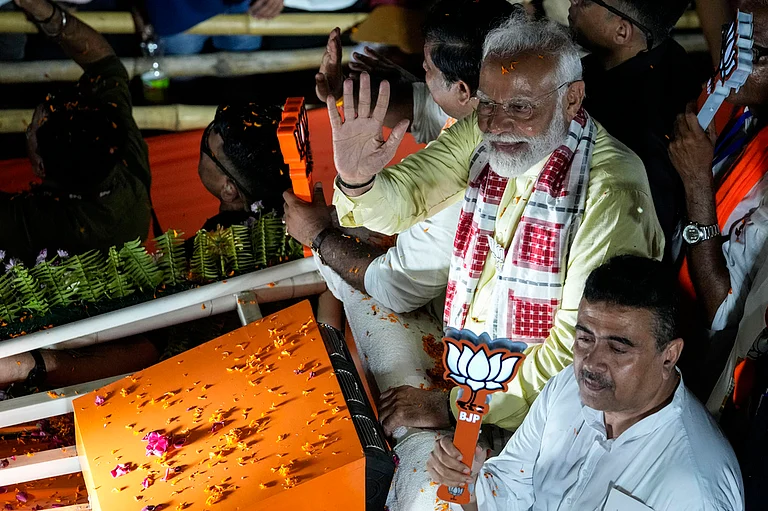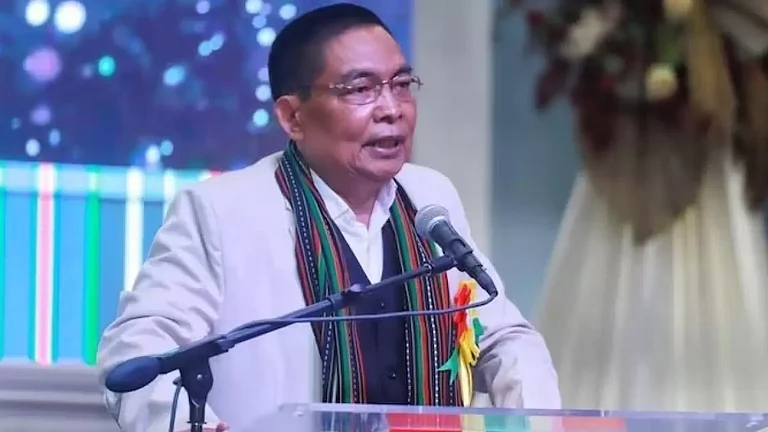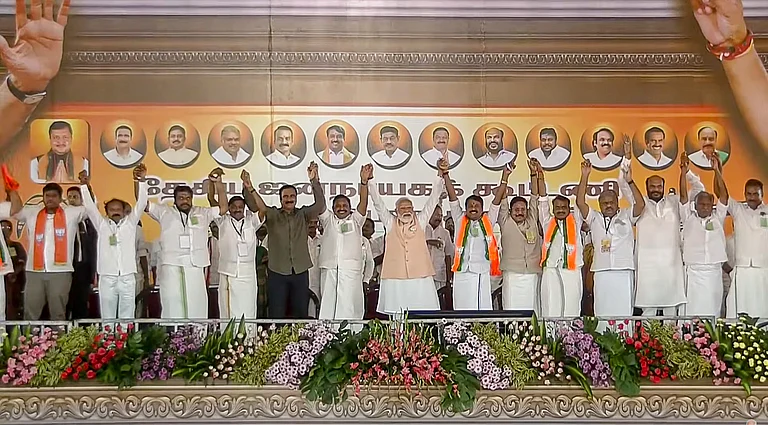More than two months of high-pitch campaigning by political parties in India’s mammoth election exercise came to an end on Thursday, two days before the final phase of voting on June 1 for the remaining 57 seats.
While Prime Minister Narendra Modi of the BJP-led NDA is widely expected to win his third successive term, the party’s campaign has come under the radar of the opposition and critics for being overly shrill against Muslims.
As we await the results, here are some top points from BJP’s high-octane election campaigning:
A shrill electoral campaign
Soon after the first few phases of elections, Prime Minister Narendra Modi and his party leaders stepped up their attack on the opposition by accusing them of hatching a conspiracy to “snatch your property” and distribute it among “infiltrators” and “those who have more children,” – this was said in an apparent reference to Muslims.
While addressing a rally in Rajasthan’s Banswara, Modi also warned “mothers and sisters” of the Congress party’s alleged intentions of taking away their “mangalsutras” to give it to the Muslims.
Despite criticism from civil society activists and opposition leaders, the Prime Minister doubled down on his comments, claiming that the Congress party is conspiring to commit “vote jihad” by uniting “a certain community” against him.
Not just the PM himself, but several senior BJP leaders have been accused of indulging in communally divisive rhetoric in their campaign speeches.
Union Home Minister Amit Shah, in his speech on May 10, in Birbhum, West Bengal, claimed that parties like TMC had ‘allowed infiltration’ for Muslim appeasement. “Mamata ji became the Chief Minister of Bengal by using slogans of Maa, Maati, Manush. And now the slogan has changed to Mullah, Madrasa, and Mafia in the pursuit of appeasement. Mullahs have been given full freedom, Madrasas are given our wealth and the mafia are openly allowed to loot the poor population. Mamata Banerjee ji, these things won’t work in the future,” he said.
Social media game of BJP
The saffron party was the frontrunner with regards to spending on political advertisements on social media. It spent at least Rs 41 crore on political advertisements through Google since the Model Code of Conduct came into place, according to statistics from Google’s Ads Transparency Center.
The party also made use of rising influencers on social media as marketers for its electoral campaign. In the weeks leading up to elections, BJP leaders were featured in most interviews conducted by social media influencers on their channels. According to research by Joyojeet Pal, an associate professor at the University of Michigan, of the five most viewed interviews by five different influencers, BJP completely dominated the landscape in comparison to opposition leaders.
In fact, in March, just about five weeks before the election got underway, PM handed out awards to 24 prominent social media influencers at the country’s first-ever National Creators Award ceremony to promote "storytellers of a confident, assertive New India," – signalling a new shift in campaign strategy of the incumbent government at the Centre.
Omnipresent Modi
In the run-up to the election, and even amidst the exercise, Prime Minister Modi’s face and cutouts were everywhere – an ‘omnipresent Modi’. From naming BJP’s promises to ‘Modi’s guarantees’, slogans and songs, to most billboards, bus stops, and railway stations, PM Modi’s face became the party’s most used tool for campaigning.
A CSDS-Lokniti study on 150 songs on YouTube and 11 dailies has revealed that the BJP has emphasised PM Modi’s charisma as the platform for campaigning for the elections.
Outlook, in its issue ‘Omnipresent Omniscient’, looked at this ‘Brand Modi’ and his image game. “There is no doubt that the powerful images we are being bombarded with have been designed for and will have lethal consequences on the imminent elections,” Dilip Cherian, India’s image guru, wrote in February 2024.
Interviews with the media
The Prime Minister, who has been known to not attend a single press conference in India during his term, gave a spate of interviews to TV channels in the run-up to multiple phases of the elections. In most of these interviews, he spoke at length about the government’s achievements and traded barbs at the opposition, while the media was publicly criticised for not asking follow-up/tough questions on the current government’s failures.
Some comments he made during these interviews went viral; for example: in an interview to anchor Rubika Liaqat, Modi said, “Until my mother was alive, I used to think I was born biologically. After her demise, when I look at my experiences, I am convinced that I was sent by god. This strength is not from my body. It has been given to me by god.”
In another interview with News18 India channel, when asked to explain his controversial remarks at the Rajasthan rally, he said, “The day I do Hindu-Muslim, I will be unworthy of public life.” Several news websites, including Outlook, conducted a fact-check to point out that the PM in fact had made comments against Muslims in the past.
‘400 Paar’
Leaders of the BJP have been claiming that they will win more than 400 (370 BJP + 30 allies) seats in the elections. ‘Abki baar 400 paar’ has been one of the many slogans that the party’s leaders have been using during campaigns. While they continue to reiterate their confidence in this number, opposition leaders have pointed out that the saffron party has been playing down the slogan after two phases of the election.
"BJP people did not know the direction of the wind, so they kept saying ‘400 paar' (winning over 400 seats) and when they realised the public sentiment after the two phases of the election, BJP forgot its slogan,” former UP chief minister Akhilesh Yadav said recently while addressing a rally in Sambhal.
























